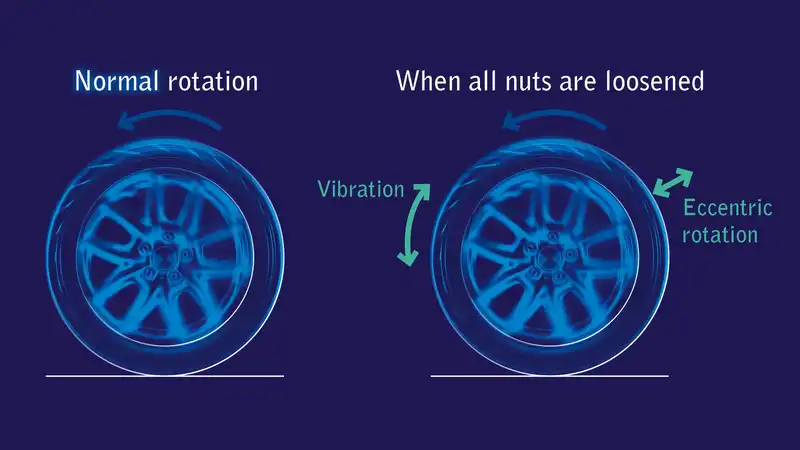Automobiles capable of detecting loose lug nuts will soon be available.

The Falken Tire maker has developed a technology to detect loose lug nuts and plans to install it in production vehicles later this year.
The new "sensing core" feature announced by Sumitomo Rubber Industries can detect lug nuts with as little as 1 mm of looseness without the use of a dedicated sensor. The sensing core relies on data from the vehicle's control area network (CAN) to analyze things like wheel speed.
Sumitomo added that the feature will be standard on vehicles from an unnamed automaker this year, and that it is in discussions with other automakers. It is unclear whether the feature will be available in the U.S.
as no word was given on the markets where the loose nut detection feature will make its debut. In Japan, Sumitomo's home country, accidents caused by loose lug nuts are becoming an increasing concern, especially ahead of the cold season when drivers switch to winter tires, the company said. Commercial vehicles often have clips to visually check that the nuts are properly tightened, but this is not a reliable method, Sumitomo argues. Passenger cars generally do not have clips.
Sumitomo claims that the Sensing Core technology is independent of tire make, model, and size and can be used for a variety of vehicle and tire combinations. The same basic technology can be used for other applications. Sumitomo also uses the same basic technology for indirect tire pressure monitoring systems, which the company claims are used by 15 automakers in the European, Japanese, Chinese, and Indian markets.
Another potential application is tire wear monitoring. This involves transmitting vehicle data to the cloud and predicting tire wear based on usage. at the 2024 CES, Sumitomo announced an investment in Viaduct, a vehicle analytics software company, to integrate Viaduct's software with its sensing core for this purpose. The company intends to.


